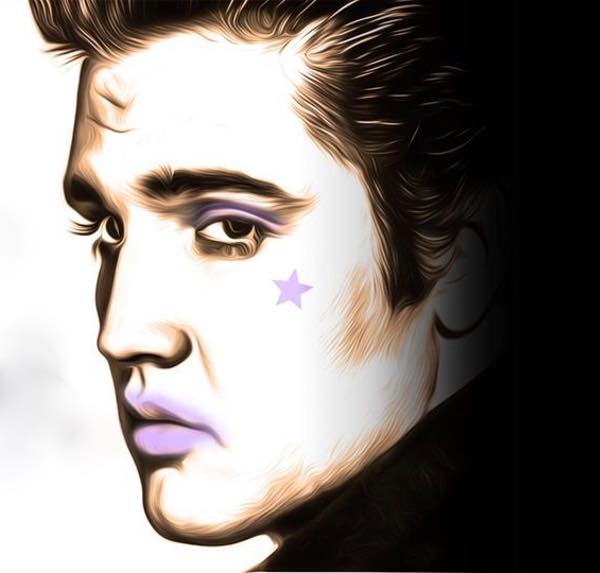
Mathew Lopez, the author of The Legend of Georgia McBride, which is now on stage in the Studio Theatre at Beck Center, also wrote The Inheritance, which in 2018 was the most honored American play in a generation, sweeping the Best Play awards in both London and New York, including the Tony Award, Olivier Award, and Drama Desk Award. He is also the writer of The Whipping Man, which also won numerous awards.
The Legend of Georgia McBride centers on Casey, a struggling Elvis impersonator working at a dive called Cleo’s in the Florida Panhandle. His act isn’t very good. Jo, his wife, announces she is pregnant. It’s great news for the sweet-natured, unrealistic Casey, but his wife, a realist, realizes that they if they can’t afford to pay the rent now, another mouth to feed is going to increase the problems.
Things get worse when Eddie, Casey’s boss, announces that “Elvis” is leaving the building, to be replaced by the bar owner’s cousin, Miss Tracy Mills, a drag queen, and his side-kick Miss Anorexia Nervosa.
What’s Casey to do? He is kept on as bartender until one evening, Nervosa comes to work drunk and flakes out, and Casey is forced to do a quick change into a dress and lip-sync an Edith Piaf song onstage. He protests, but then the tips start rolling in, and suddenly a lot of his financial problems are solved.
One night he gets the inspired idea to remake his Elvis costume — and presto, the drag queen Georgia McBride is born.
For the uninitiated, drag is usually the act of a male dressing in overdone “glamorous” dresses, long flowing wigs, heavy makeup and fake eyelashes. It is accompanied by exaggerated gendered behaviors — limp wrists, swaying hips and inflated movements. The name an individual goes by while in drag is usually extravagant or funny, and potentially related to their persona. Most drag queens don’t desire to be women. They are not interested in transitioning. Many are “straight” men, not homosexuals, who like to dress in women’s clothing and perform.
Drag has come into the cultural spotlight in recent years with the popularity of shows like the reality competition RuPaul’s Drag Race and Broadway’s Kinky Boots. While these media representations have introduced many viewers to the glamorous sashaying and fierce style of drag for the first time, the roots of drag performance go back many decades.
A drag show traditionally consists of a variety of songs, occasionally a dance routine. Performers seldom actually sing, usually lip-syncing to another singer’s recordings. The renditions are often those of gay icons, such as Barbara Streisand, Judy Garland or Liza Minelli.
For The Legend of Georgia McBride to be successful, as indicated in the reviews of the shows that have been successful, the costumes, makeup and performances must be “absolutely fab-U-lous.”
In an attempt to assist director Eric Schmiedl, the Beck performance was aided by having Veranda L’Ni, “Cleveland’s Tallest Drag Entertainer” as its Director of Drag. As evidenced by her presence at the show’s opening, L’Ni, encased in a gorgeous gown, a hair style to die for, and perfectly applied makeup, is drag queen extraordinaire. Unfortunately, even this pro couldn’t raise her “students” to be of the quality of the “Drag Bingo Queen.”
Handsome Matt Gittins has the thin body, facial bone structure and perfect legs to make for a convincing drag queen. He just didn’t transform into the believable Georgia that would make him a real star of the show. He was much too inhibited. He was not aided by having to wear tacky wigs and costumes. He was much more convincing as husband Casey.
Jason Eno, who has a physical resemblance to the late Sammy Davis, Jr., put out full effort as Miss Tracy Mills. As with Gittins, he was thwarted by unattractive costumes and wigs. Zak Tahsin never quite became believable in either his role as Jason or Anorexia. Bryce Even Lewis was quite believable as the put-upon Jo. Brian Pedaci was effective as bar-owner Eddie.
The set caused many long delays as the scenes shifted from living room to back stage to bar stage many times.
Capsule judgment: The Legend of Georgia McBride had the potential to be a hoot of an evening. As is, it didn’t have the pizzazz to be either a fun drag show, or an escapist comedy. The poorly conceived costumes and wigs, the lack of the needed quick pacing, and the overly long production (almost two hours without break), left too much to be desired.
The Legend of Georgia McBride runs through June 26 in the Studio Theatre of Beck Center for the Arts. For tickets call 216-521-2540 X10 or go to beckcenter.org.
[Written by Roy Berko]